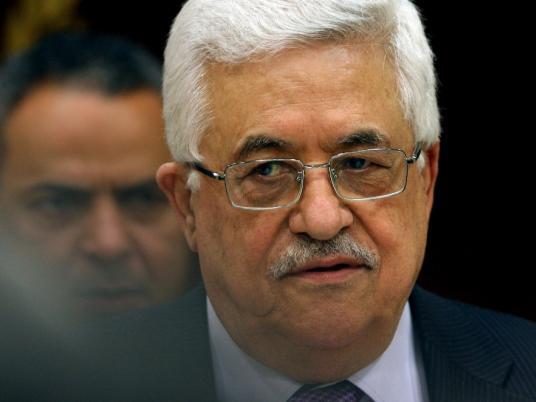
The Palestinian president on Monday called the US ambassador to Israel a “son of a dog” in an angry rant against the Trump administration, signaling new trouble ahead for an expected US peace proposal.
President Mahmoud Abbas also took aim at the rival Hamas militant group, accusing it of being behind an attempted assassination last week of his prime minister and security chief, and threatening to retaliate.
In an address to Palestinian officials, Abbas pre-emptively rejected the White House peace proposal, which is still being developed.
US officials have not said when it will be unveiled, but Abbas has already ruled it out, accusing the Trump administration of being unfairly biased in favor of Israel.
In his speech, Abbas criticized the US recognition of Jerusalem as Israel’s capital, the American plan to move its embassy to the city and the cutoff of hundreds of millions of dollars in aid to the UN agency for Palestinian refugees.
He also condemned Ambassador David Friedman’s close ties with the West Bank settler movement, describing him as a “son of a dog.”
“Then they said, ‘Wait for our plan.’ What shall we wait for? We will not,” he said. “Many said, ‘Why don’t you go to Washington?’ They want us to go to Washington to sign. We will not accept that, and we will not let it pass.”
Friedman responded to the remarks at a conference on anti-Semitism in Jerusalem.
Abbas’ “response was to refer to me as a son of a dog. Anti-Semitism or political discourse? Not for me to judge. I leave that all up to you,” Friedman said.
In Washington, US State Department spokeswoman Heather Nauert said, “President Abbas’s comments were outrageous and unhelpful. We urge the Palestinian Authority to focus its efforts on improving the lives of the Palestinian people and advancing the cause of peace.”
Jason D. Greenblatt, a Trump assistant and special representative for international negotiations also responded sharply:
“The time has come for President Abbas to choose between hateful rhetoric and concrete and practical efforts to improve the quality of life of his people and lead them to peace and prosperity,” he said.
“We are committed to the Palestinian people and to the changes that must be implemented for peaceful coexistence. We are finalizing our plan for peace and we will advance it when circumstances are right.”
Hamas seized control of Gaza from Abbas’ forces in 2007, and attempts at reconciliation have repeatedly failed. The US has been pushing for progress in reconciliation in the run-up to its peace proposal.
Abbas, however, said he was furious over the bomb that targeted the convoy carrying his prime minister and security chief last week, which did not seriously injure anyone. Abbas said he would take new punitive measures against Hamas.
“As president of the Palestinian people I’ve decided to take all national, legal and financial measures,” said Abbas, without elaborating. He said his government will either take full responsibility for Gaza or abandon it to Hamas, a step that would in effect end the dream of a Palestinian state in the West Bank and Gaza.
Abbas has already taken steps to put pressure on Hamas, including reducing electricity shipments to Gaza and cutting the salaries of former civil servants. Those steps, along with an Israeli-Egyptian blockade, have worsened Gaza’s long-running humanitarian crisis.
Earlier this month, the US hosted a “brainstorming” conference on how to improve conditions in Gaza. “After 10 years, they realized that the Gaza humanitarian situation is tough,” Abbas said derisively.



